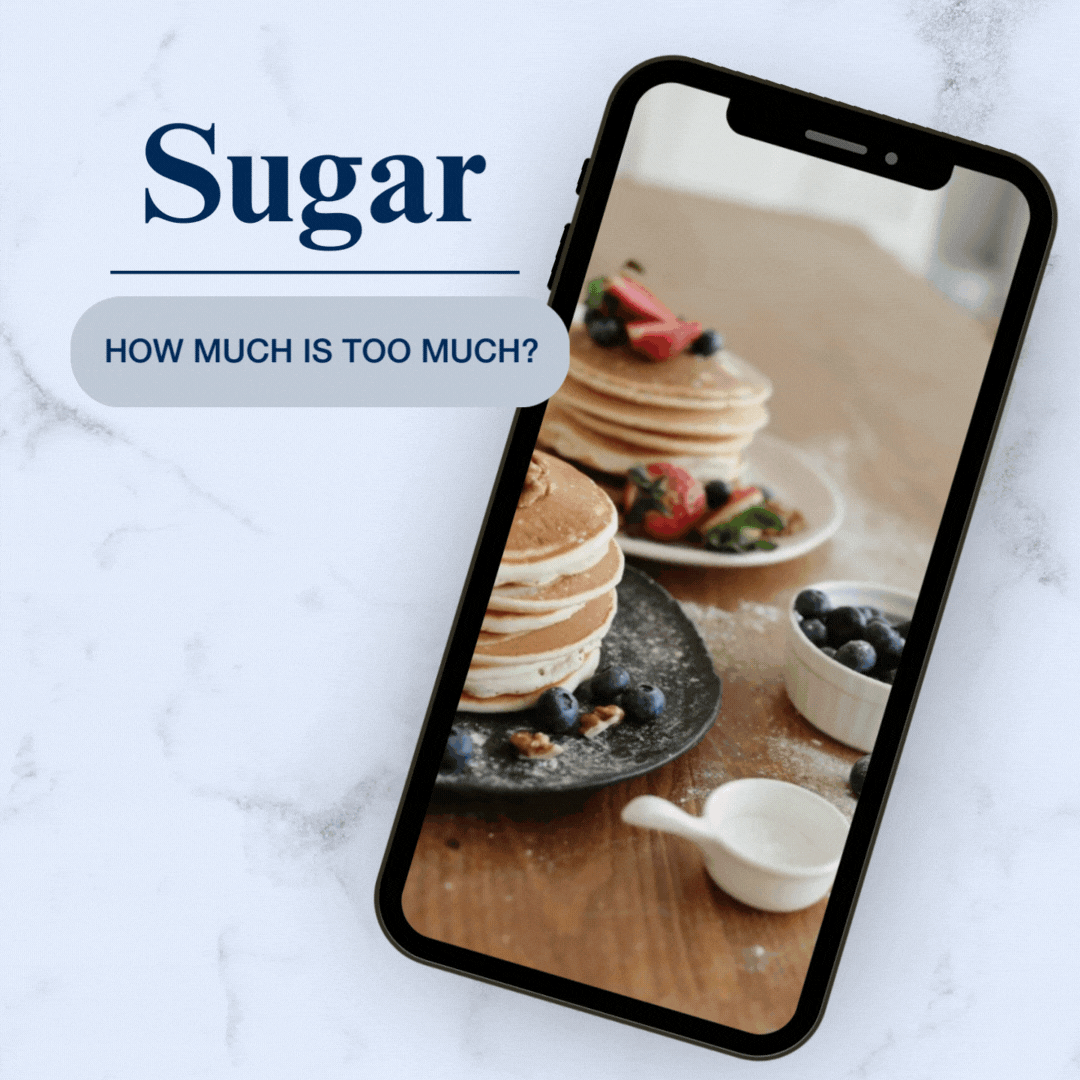When it comes to dietary choices, sugar stands as both a ubiquitous delight and a formidable challenge. Beyond the sweetness it imparts to our lives, the very nature of our modern-day food consumption necessitates a closer examination of the types of sugars in our foods and how much is too much. Distinguishing between natural and added sugars, understanding their impacts on health, and exploring effective strategies for managing their intake. This article will uncover the bitter truths about the sweet ingredient and pave the way for a healthier relationship with this essential yet controversial component of our diets.
Natural & Added Sugar Consumption
The dual nature of sugar paints a complex picture when it comes to its impact on health. Distinguishing between naturally occurring sugars in foods like fruits and vegetables and added sugars in manufactured products is crucial for health. Sugary beverages rank as the primary source of added sugar, followed by cakes, sweets, processed foods, and cereals.
While natural and added sugars undergo the same metabolic process in our bodies, the consumption of natural sugars in foods like fruits is generally not associated with negative health effects[1]. This is because the amount of sugar is typically modest and comes bundled with fibre and other beneficial nutrients. Conversely, our bodies do not require or derive benefits from consuming added sugars.
Types of Sugar
All types of sugars, whether labelled as high fructose corn syrup (HFCS) or agave nectar, contribute extra calories and undergo similar metabolic processes in the body[2]. Contrary to the belief that certain sugars are healthier, a recent report by Harvard Health Publishing (2023) reveals that most added sugars primarily consist of glucose and fructose in varying proportions. For example, sucrose is a 50-50 mix, HFCS commonly has a 45-55 split, and some agave nectars contain up to 90% fructose and 10% glucose.
The varying fructose-to-glucose ratio in added sugars has minimal impact on health. While some, like honey, may offer micronutrients or bioactive compounds, these properties provide limited metabolic health benefits.
Sugar impacts on health
Weight
It’s well-known that too much sugar can have us looking rounder, yet increased intake of added sugar, particularly from beverages, correlates with weight gain and a higher risk of type 2 diabetes and cardiovascular disease.[3]
While excess sugar consumption is linked to obesity, a risk factor for various significant cancers, including post-menopausal breast, colorectal, endometrial, kidney, oesophageal, pancreatic, liver, and gallbladder cancer. It leads to an approximately 17% higher risk of cancer-specific mortality[4]. However, the Australian Dietary Guidelines, as updated by the National Health and Medical Research Council (NHMRC), dismiss the direct association between sucrose consumption and an elevated risk of cancer, stating no conclusive evidence supporting an adverse impact[5].
Cardiovascular health
However, it is also now known the repercussions of excessive sugar consumption extend beyond the well-documented issues of obesity and diabetes. Harvard research highlights an unexpected connection between high sugar intake and heart health. A 15-year study into the sweet ingredient showed a concerning link between a diet high in added sugar and an increased risk of heart disease[6].
The mechanism by which sugar affects heart health is not fully understood, but various indirect connections are evident. The liver, tasked with metabolising sugar like alcohol, converts dietary carbohydrates into fat. Over time, this process may lead to fatty liver disease, a precursor to diabetes, thereby elevating the risk of heart disease.
Excessive added sugar intake is associated with elevated blood pressure and chronic inflammation, both pathways leading to heart disease. Moreover, sugary beverages contribute to weight gain by disrupting the body’s appetite-control system. The adverse effects of added sugar consumption, ranging from[7]:
- high blood pressure
- inflammation
- weight gain
- diabetes
- fatty liver disease
Collectively, these symptoms elevate the risk of heart attack and stroke.
Dental Health
Individuals who frequently consume sugar face an increased likelihood of developing dental caries (decay), especially when the food they consume is sticky or ingested between meals. Snacks and beverages containing sugars, in particular, have detrimental effects on dental health.
Alarming ABS statistics reveal the widespread impact of sugar on dental health in Australia. About 42% of 5-10-year-olds have encountered tooth decay in their primary teeth, while 24% of those aged six to 14 have experienced decay in their adult teeth[8]. Additionally, 27% of five- to 10-year-olds suffer from untreated dental decay. Disturbingly, one in six teenagers consumes over 5kg of sugar annually solely from sugary drinks – equivalent to the weight of a family cat. The 2017-18 survey found that fewer than 11% of adults in Australia had no experience of dental decay in their permanent teeth[9].
Sugar consumption guidelines
Establishing an optimal daily sugar intake is challenging since sugar isn’t a necessary nutrient. The Australian dietary guidelines do not provide specific daily sugar consumption recommendations. However, they advise limiting the consumption of foods and beverages containing added sugars, including confectionery, sugar-sweetened soft drinks and cordials, fruit drinks, vitamin waters, energy drinks, and sports drinks.[10]
The World Health Organisation (WHO) recommends reducing the intake of free sugars to less than 10% of total energy intake in both adults and children (strong recommendation).
In fact, WHO suggests that reducing the intake of added sugars to less than 5% of total energy intake is optimal, due to the negative health effects of tooth decay, being a cumulative effect from childhood.
TIPS to reduce sugar intake.
While vigilance in reducing added sugar is important, reading food labels becomes crucial, as added sugars can be camouflaged under various names. Abruptly cutting back on sugar may lead to compensatory consumption of other unhealthy foods, such as refined starches and comfort foods high in saturated fat and sodium. Understanding the sources of added sugar and making informed choices can pave the way for a healthier relationship with this often misunderstood ingredient.
- Label Literacy: Get in the habit of reading food labels to identify the sugar content in foods you consume. Knowing that sugar is in many unexpected foods, such as sauces, soups, and breads, can help you keep a more accurate total over the day. See the below guide on understanding labels.
- Healthier Alternatives: Opt for whole foods and choose more natural alternatives to satisfy sweet cravings. Swapping fizzy and energy drinks for mineral or plain water is a good place to start.
- Source Awareness: Understand the sources of added sugar in your daily diet to make informed choices, including unexpected ones like sauces and dips or sugary mixers in your favourite cocktail.
- Gradual Reduction: Instead of abruptly cutting back, gradually reduce sugar intake to avoid compensatory consumption of unhealthy alternatives.
- General Practitioner (GP) Support: Consult with your GP for personalised guidance and support in managing your health during the transition.
Conclusion
To effectively reduce sugar intake, a multifaceted approach is essential. However, recognising the need for personalised guidance, the support of a GP is emphasised, providing tailored advice for managing sugar intake and promoting overall health. As we embark on this journey to a healthier relationship with sugar, let your GP be a guiding partner in achieving your well-being goals.

















